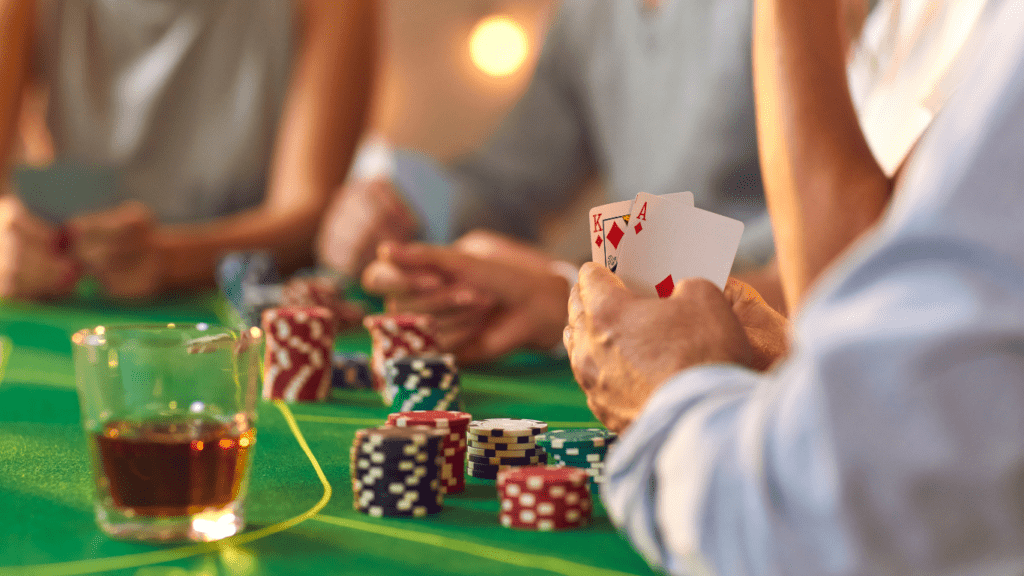Understanding Gambling Myths
Gambling myths abound, often rooted in misunderstandings or exaggerations. It’s crucial to unravel these myths for a clearer perspective. One common myth is that gambling guarantees a path to easy money. While wins do occur, gambling outcomes are inherently random, with no sure route to profit. Another widespread myth asserts that certain strategies increase one’s chances of winning in games of chance. In reality, most casino games rely heavily on luck, minimizing the impact of strategies.
Many believe that some gamblers are “due” for a win after a losing streak. This belief ignores the independence of each game outcome. The notion that casinos manipulate games to ensure players lose further misleads individuals; reputable casinos adhere to strict regulations and fairness standards. Understanding these myths helps dispel unrealistic expectations, promoting informed choices and a responsible approach to gambling.
Common Gambling Myths Debunked
Gambling often carries misconceptions that lead to false beliefs. I’ll address a few prevalent myths to promote a deeper understanding of gambling dynamics.
The Myth of the “Hot Streak”
Many believe in the concept of a “hot streak” where consistent wins suggest continued success. However, gambling outcomes rely on probability rather than past results. Each game round remains independent of previous outcomes. Casinos design games with this randomness to ensure fairness. The belief in hot streaks distorts reality and could result in misplaced confidence.
“Winning Systems” and Their Realities
“Winning systems” promise guaranteed success in gambling but often mislead players. These systems lack consistent success because games of chance, like roulette or slot machines, operate on randomness. While strategies like card counting in blackjack exploit inherent game mechanics, they require expertise and aren’t foolproof. Misunderstanding these “systems” could lead players astray.
Luck vs. Skill in Gambling
Luck and skill often clash in gambling discussions. Games like poker incorporate skill, where understanding odds betters player performance. Conversely, games like slot machines rely solely on luck. Recognizing the balance between luck and skill is essential for setting realistic expectations. Knowing the nature of a game guides better decision-making and helps align strategies accordingly.
The Psychology Behind Gambling Beliefs

Understanding the psychology behind gambling beliefs helps clarify why myths persist. Analyzing cognitive biases and superstitions reveals their impact on gambling behavior.
Cognitive Biases in Gambling
Cognitive biases significantly influence gambling decisions.
- The gambler’s fallacy convinces individuals that past outcomes affect future results, when gambling events are independent. For example, after several losses, a player might irrationally expect a win.
- Confirmation bias leads people to favor information confirming pre-existing beliefs about luck or skill in gambling. They might remember wins more vividly than losses, skewing their perception of success.
- Availability heuristic affects perceptions by causing people to judge probability based on recent experiences, like massive lottery wins in the news.
The Role of Superstitions
Superstitions play a crucial role in gambling behaviors. These beliefs often stem from a desire to exert control over chance-based outcomes. For instance, a player might always wear a “lucky” shirt when visiting a casino, believing it influences success. Rituals, like tapping a slot machine three times before spinning, serve as psychological comfort even when outcomes are random. Such practices persist because they provide gamblers with a false sense of control, despite lacking any real impact on game results.
How Gambling Myths Affect Behavior
Gambling myths impact behavior in significant ways. These myths shape habits and influence financial decisions, often leading to misguided actions.
Influencing Gambling Habits
Myths create false expectations about gambling outcomes, affecting habits. The belief in “hot streaks” can prompt excessive betting, as seen when individuals intensify their play expecting continued success. Superstitions, like carrying lucky charms, alter behavior by creating a reliance on these objects for favorable results. These habits can become ingrained, making it difficult to maintain a rational approach to gambling.
Impact on Financial Decisions
- Financial decisions are heavily swayed by gambling myths.
- The misconception that one can “chase losses” to win back money leads to detrimental spending patterns.
- People might allocate excessive funds to gambling, assuming eventual big wins despite consistent losses.
- Expectations of guaranteed returns can upend financial stability, as individuals invest more money than they can afford.
- Understanding these myths’ impact can help recognize and avoid financially damaging decisions.
Strategies to Identify and Avoid Gambling Myths
Identifying and avoiding gambling myths necessitates a proactive approach. Understanding the basis of these myths helps maintain realistic expectations and promotes responsible gaming.
Research and Education
Research provides valuable insights into gambling realities. I explore credible sources, like academic studies or publications from gambling commissions, to grasp the actual workings of games. Education dispels myths by offering fact-based knowledge. Online courses and informative articles enhance my understanding, enabling me to separate myths from facts.
Seeking Professional Guidance
Professional guidance bolsters informed decision-making in gambling. Consulting with gambling counselors or financial advisors helps clarify misconceptions. They offer expert advice that aids in distinguishing reality from myth, ensuring my gambling habits remain balanced and responsible.



 _____
Jennyca Delvecchionn – Founder & Visionary Strategist
Jennyca Delvecchionn is the brilliant mind behind Play Gambler Cash. With a deep understanding of betting strategies and a passion for empowering gamblers, she has built a platform that delivers cutting-edge insights and tools. Jennyca’s mission is to help players navigate the digital betting era with confidence, blending innovation with responsible gambling practices.
_____
Jennyca Delvecchionn – Founder & Visionary Strategist
Jennyca Delvecchionn is the brilliant mind behind Play Gambler Cash. With a deep understanding of betting strategies and a passion for empowering gamblers, she has built a platform that delivers cutting-edge insights and tools. Jennyca’s mission is to help players navigate the digital betting era with confidence, blending innovation with responsible gambling practices.